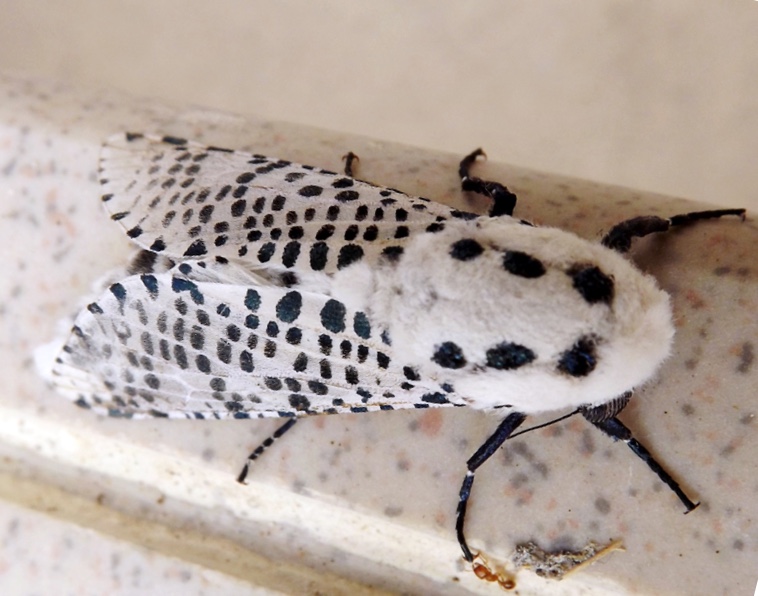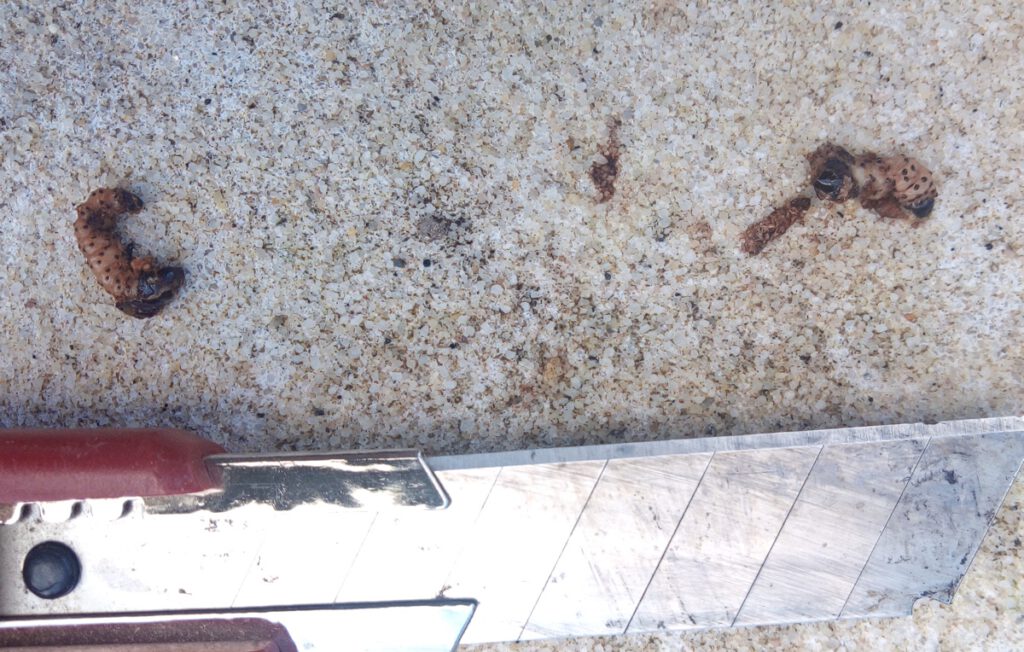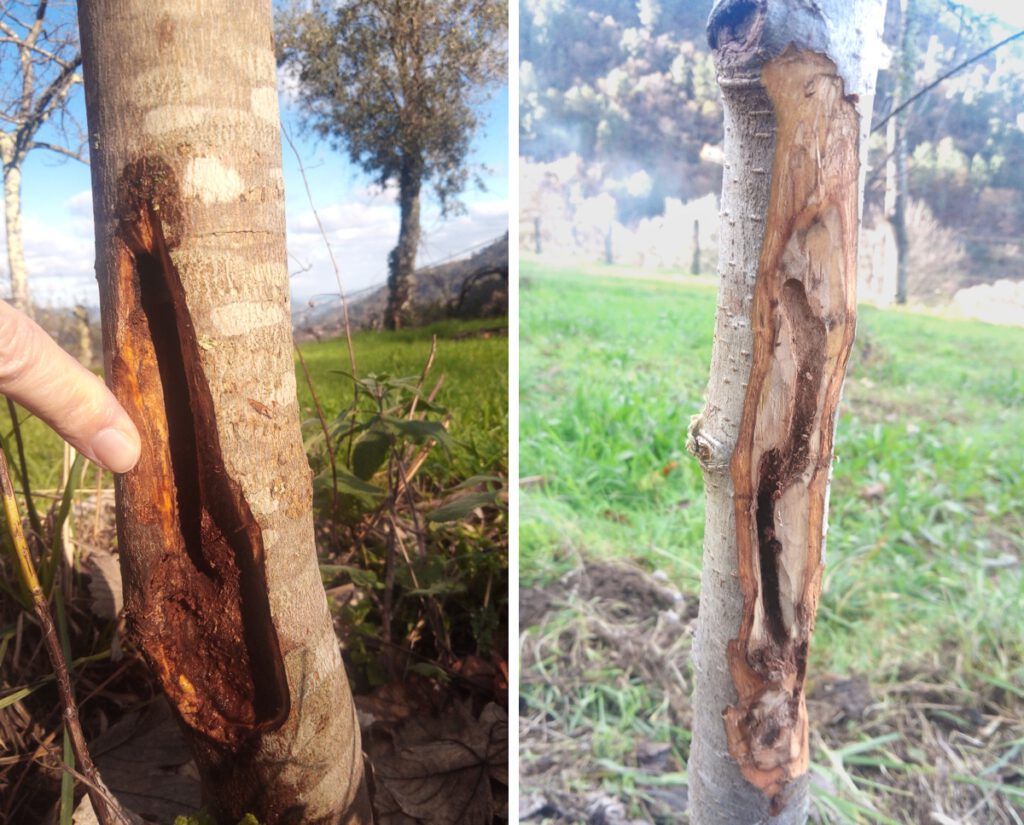Unnoticed, nocturnal visitors have been in our garden. This is surprising because they have a distinctive appearance: a white, fluffy coat with black spots. And this is the damage they leave after their visit:
To be more precise, this is the damage left by their children.
Our nocturnal intruder is the leopard moth, a moth that lays eggs on the young trunk or branches of a tree. From these eggs, tiny larvae come out and drill a hole in the bark to enter. Under the bark, they eat their way around for three years. And in the process, they leave behind a tunnel 30-40 cm long! The beautiful large caterpillar pupates just under the bark and then crawls out of the tree as a beautiful moth:

© Ana Gonçalves, www.naturdata.com
Leopard moths are active from early June to late August. During this period, they mate and the females lay their eggs. Now we know we need to check the young fruit trees for boreholes at this time of year. Because a few of these caterpillars can kill a tree with ease. They favour apple, pear, quince, olive, chestnut and maple trees. But an occasional plum tree will do too.
Judging by the damage, the caterpillars had been in this maple and apple tree for at least a year. The bark feels a bit soft in those spots. And if you stick a knife in, you can easily reveal the eaten-away tunnel. With a piece of iron wire, you can stab the caterpillar (which makes a nasty sound) to death. Hopefully, we saved our young trees in time. Besides these two trees in the picture, about 5 other quinces, pears and apples had been affected.

Although we prefer to keep insects alive, this time we preferred our young trees.
On the Iberian Peninsula, this moth is considered a plague. Professional producers hang pheromone traps in summer to catch the males. Without males no fertilisation, and without fertilisation no larvae from the eggs.
We won’t go that far. But we now know why some of the young trees in our garden didn’t grow well.
Therefore, this summer, we’ll be doing some guard duty.


